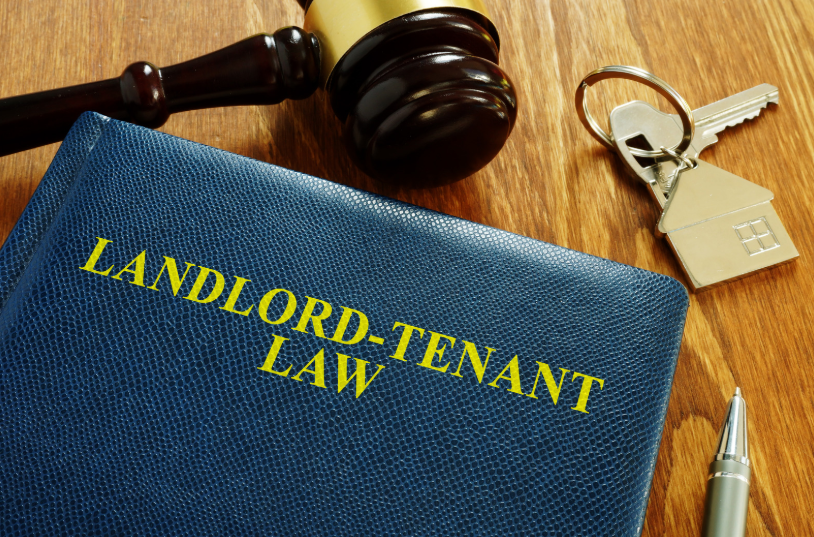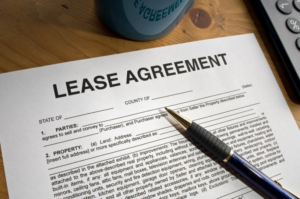
Texas landlords, including those renting commercial properties, must adhere to specific laws and regulations when dealing with tenants. While Texas laws tend to favor landlords, there are limits to what they can do. Understanding Texas eviction laws, commercial tenant rights in Texas, and the legal processes involved can help tenants protect their rights and avoid illegal actions by landlords.
This article will break down what landlords are prohibited from doing under Texas law, focusing on commercial leases, lockouts, evictions, and tenant protections.
Landlord Obligations and Tenant Protections
Under Texas law, landlords have certain responsibilities when managing their properties and interacting with tenants. Violating these responsibilities can lead to legal consequences. Here’s what landlords cannot do legally:
- Deny Access to the Property Without Proper Notice: Landlords cannot lock tenants out of their property without following the proper lockout procedures.
- Ignore Lease Terms: Lease agreements often include specific rules for rent payments, notices, and eviction timelines, which landlords must follow.
- Engage in Retaliation: Retaliating against a tenant for asserting their rights, such as reporting unsafe conditions, is illegal.
- Discriminate Against Tenants: Texas landlords must comply with federal and state anti-discrimination laws, ensuring fair treatment of tenants.
Key Protections for Commercial Tenants
Commercial leases differ from residential leases in terms of regulations and tenant protections. However, commercial tenants are not without rights.
- Right to Notice Before Lockouts: For commercial tenants, landlords must follow proper procedures before initiating a lockout. According to commercial lockout notice Texas laws, landlords must provide a written notice containing contact details for retrieving a new key after payment of back rent.
- Right to Due Process During Eviction: Landlords must adhere to the commercial property eviction process when evicting tenants, which includes providing notice and following legal eviction procedures.
- Right to Secure Possession: Landlords cannot remove a tenant’s belongings or change the locks arbitrarily, even if rent is unpaid.
Texas Eviction Laws – What Landlords Cannot Do

Eviction laws in Texas establish clear guidelines for landlords. Any actions outside these guidelines are illegal.
Lock Out a Commercial Tenant Without Notice
Can a landlord lock out a commercial tenant in Texas? Yes, but only if they follow legal procedures. Lockouts are permitted for unpaid rent, but landlords must:
- Post a written notice on the tenant’s door with their contact information.
- Allow tenants to regain access upon payment of overdue rent during normal business hours.
Failing to comply with these requirements makes the lockout illegal.
Evict Without Proper Notice
Under Texas law, landlords must give tenants at least three days’ notice before filing for eviction, unless the lease specifies otherwise. This notice must be in writing and clearly state the reason for eviction. Without this step, any eviction action may be deemed invalid.
Remove Tenant Property Without Following Legal Steps
Landlords cannot seize or dispose of tenant property without adhering to abandonment and eviction rules. For instance:
- If a tenant abandons the property, the landlord must wait 60 days before disposing of any belongings and must notify the tenant by certified mail.
- During eviction, a writ of possession must be issued before removing tenant property.
Retaliate Against Tenants
It is illegal for landlords to retaliate against tenants for:
- Filing complaints about unsafe conditions.
- Reporting discrimination or lease violations.
Conduct a Lockout or Eviction for Non-Rent Issues
For commercial eviction in Texas, landlords cannot lock out or evict tenants for issues unrelated to rent, such as minor lease violations, without following the lease terms and legal procedures.
Common Scenarios Involving Illegal Landlord Actions
Can You Evict a Commercial Tenant for Not Paying Rent?
Yes, landlords can evict commercial tenants for non-payment of rent. However, they must:
- Provide written notice to vacate.
- File a forcible detainer lawsuit if the tenant refuses to leave.
- Obtain a writ of possession from the court to enforce eviction.
Landlords cannot bypass these steps by locking out tenants or removing their belongings without legal authorization.
Evicting a Month-to-Month Commercial Tenant
When dealing with evicting a month-to-month commercial tenant, landlords must follow the notice requirements outlined in the lease or provide a minimum notice period specified by Texas law. They cannot evict tenants without adequate notice or proper legal proceedings.
Commercial Lockout Notice Texas – Legal Requirements
If a landlord locks out a commercial tenant without providing proper notice, the tenant may:
- File a complaint to regain access to the property.
- Seek damages equal to one month’s rent or $500, whichever is greater, along with legal fees.
Can a Landlord Lockout a Commercial Tenant in Texas Without Just Cause?
Lockouts for reasons other than delinquent rent, such as minor lease violations or disagreements, are illegal unless explicitly allowed in the lease agreement.
How to Evict a Commercial Tenant in Texas
The commercial property eviction process in Texas involves specific legal steps:
- Notice to Vacate: Provide a written notice to the tenant explaining the reason for eviction and allowing time to resolve the issue or leave.
- Filing a Forcible Detainer Suit: If the tenant does not comply with the notice, the landlord files a lawsuit in a local justice court.
- Court Hearing and Judgment: The court hears the case and issues a judgment. If the landlord prevails, they receive a writ of possession.
- Execution of Writ of Possession: Law enforcement serves the writ, giving the tenant at least 24 hours to vacate. After this, the landlord can remove the tenant’s belongings if necessary.
Landlords must adhere to these steps, ensuring tenants’ rights are not violated during the eviction process.
What Tenants Can Do to Protect Their Rights
Understand Your Lease Agreement
Review the lease for details on eviction procedures, notice requirements, and lockout policies.
Document Violations
Keep records of any illegal actions by the landlord, such as lack of notice or improper lockouts. This evidence can support your case if legal action is necessary.
Assert Your Rights in Court
If your landlord violates your rights, you can:
- File a motion to regain access to your property in the case of an illegal lockout.
- Seek damages for financial losses and legal fees caused by the landlord’s actions.
How a Professional Real Estate Attorney Can Help

Navigating Texas eviction laws and protecting your rights as a commercial tenant can be complex and stressful. At Roquemore Skierski Business Lawyer, we specialize in defending tenants against illegal landlord actions.
Our services include:
- Advising on commercial tenant rights in Texas.
- Assisting with disputes over lockouts, evictions, and lease violations.
- Representing tenants in court to challenge improper landlord actions.
If you’re dealing with a landlord dispute, contact Roquemore Skierski Business Lawyer today for expert legal guidance. Let us help you safeguard your rights and resolve your issues effectively.



